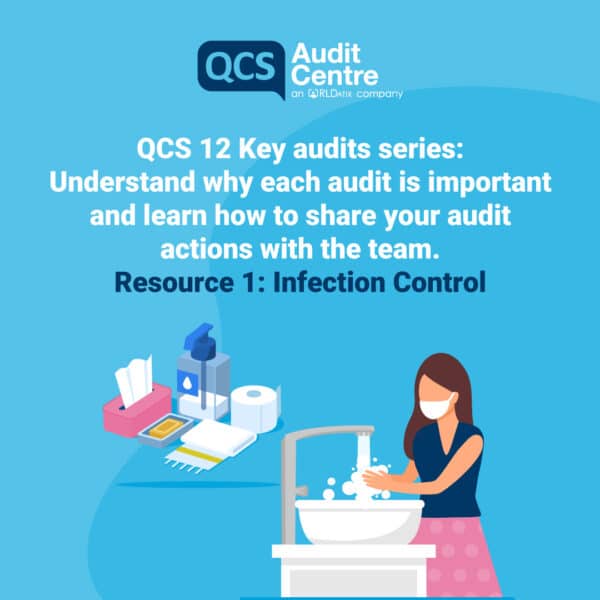Why do we need to complete audits?
To achieve good governance in your service you must demonstrate continuous quality improvement. To do this, auditing and documenting the effectiveness of the processes and systems you have in place, and taking time to observe and document how people experience your service, is essential.
Audits and completed action plans offer evidence of the great care you provide. Where improvements are needed, they allow you to demonstrate openly and clearly how you plan to make the changes required that you have identified.
Infection Control – The case for auditing
Good infection control is key for your social care service to keep service users and team members safe. Infection control audits are an essential way of ensuring that infection prevention guidelines and control measures are being taken seriously and followed correctly. Infections in service users can be serious, they can make existing medical conditions worse and, in some cases, can be life threatening. Making sure excellent infection control measures are in place and being used in social care settings prevents or stops the spread of infection.
You must audit infection control to protect your service users and team members. Auditing will not only highlight the areas you are performing well in, it will also point out areas that require improvement, ensuring that your service is as safe as possible. Regular re-auditing will ensure you are kept on track and provide vital evidence to regulators.
Infection Control – Achieving compliance
Audits enable you to provide valid, up-to-date evidence to the CQC that you are managing the infection control audit process effectively and meeting the required regulations such as:
- Regulation 9: Person-centred care
- Regulation 12: Safe care and treatment
- Regulation 15: Premises and equipment
- Regulation 17: Good governance
Findings – What does the infection control audit tell you?
Example 1: While auditing members of the team washing their hands, you realise that some team members are not washing their hands correctly. You should:
- Demonstrate the correct technique yourself following the audit guidance
- Arrange further training through a group learning exercise
- Re-audit to make sure hands are now being washed using the correct technique
Example 2: When going through the audit you realise that a team member has not received infection control training for a while. You should:
- Check the training matrix to see when their training is due to be renewed
- Make sure all staff have received infection control training relevant to their role, including COSHH (Control of Substances Hazardous to Health), donning and doffing personal protective equipment (PPE) and food hygiene
- If due, make sure the relevant training is scheduled
So, what happens next?
Effective auditing can encourage providers and staff to have confidence in your process and in turn, foster an open and transparent culture where staff feel comfortable reporting incidents and near misses, especially if this is part of a ‘no blame’ culture.
But it does not stop once the audit is complete. Your good governance systems then take over creating an environment where learning and improvement thrive, benefitting the safety and wellbeing of those receiving care and support.
Once you have had a chance to review your audits, you can then, if needed:
- Allocate resources
- Implement prevention measures
- Increase/implement/refresh staff training
- Consider environmental changes
- Consider the use of assistive devices
- Share the findings and actions with the team
Now help your team learn about infection control auditing by completing our QCS Resource 1: Infection Control Audit – Group Learning Exercise.




